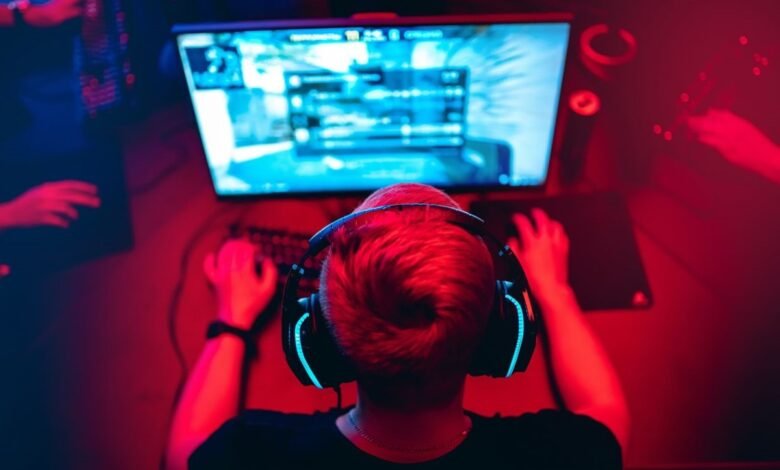The Impact of Gaming on Mental Health and Well-Being

Gaming has become an increasingly popular form of entertainment, captivating millions of people worldwide. While gaming offers immersive experiences and endless fun, it also raises concerns about its impact on mental health and well-being. In this article, we will delve into the influence of gaming on individuals’ mental health, exploring both the positive and negative effects it can have. We will also provide tips for maintaining a healthy balance and promoting mental well-being in the gaming community.
In today’s digital era, gaming has transformed from a niche hobby to a mainstream phenomenon. With advancements in technology and the rise of online gaming communities, the accessibility and popularity of gaming have soared. As more individuals engage in gaming, it is crucial to examine the effects it has on mental health and overall well-being.
Read more: The Ultimate Gaming Accessories Guide in 2023
Understanding Gaming and Its Popularity

Before we explore the impact of gaming on mental health, it is essential to understand the appeal and widespread popularity of this recreational activity. Gaming offers individuals an escape from reality, allowing them to immerse themselves in virtual worlds and embark on thrilling adventures. The interactive nature of gaming and the ability to connect with others globally have contributed to its exponential growth.
Positive Effects of Gaming
Contrary to popular belief, gaming can have several positive effects on mental health and well-being. Let’s explore some of these benefits in detail.
Cognitive Benefits
Gaming often requires strategic thinking, problem-solving, and quick decision-making, which can enhance cognitive abilities. Research suggests that certain genres of games, such as puzzle games or strategy games, can improve memory, attention, and problem-solving skills.
Social Interaction and Community
Online gaming communities provide platforms for social interaction, fostering friendships and a sense of belonging. Multiplayer games enable individuals to connect with like-minded people worldwide, encouraging teamwork and collaboration. These social connections can positively impact mental well-being by reducing feelings of loneliness and isolation.
Stress Relief and Relaxation
Engaging in gaming can serve as a form of stress relief and relaxation. Immersing oneself in a captivating game can help individuals temporarily escape daily pressures, providing a much-needed break. Gaming can also release endorphins, the body’s natural mood-enhancing chemicals, promoting a sense of relaxation and well-being.
Negative Effects of Gaming

While gaming offers various benefits, it is essential to acknowledge the potential negative effects it can have on mental health and overall well-being. Let’s examine some of these drawbacks.
Excessive Gaming and Addiction
One of the significant concerns associated with gaming is excessive use and addiction. When gaming becomes compulsive and interferes with daily responsibilities, relationships, and other activities, it may indicate an addiction. Excessive gaming can lead to social withdrawal, neglect of personal hygiene, and impaired academic or professional performance.
Impact on Physical Health
Sedentary gaming sessions can contribute to a sedentary lifestyle, leading to health issues such as obesity, cardiovascular problems, and musculoskeletal disorders. Prolonged screen time can also strain the eyes and disrupt sleep patterns, negatively affecting overall physical well-being.
Relationship and Social Challenges
Excessive gaming can strain relationships with family and friends. When gaming takes precedence over spending time with loved ones or fulfilling social commitments, it can lead to conflict and feelings of neglect. Balancing gaming with maintaining healthy relationships is crucial for overall well-being.
Moderation and Balance
To mitigate the potential negative effects of gaming, moderation and balance are,e essential. Here are some strategies for maintaining a healthy gaming lifestyle.
Setting Boundaries and Time Limits
Establishing clear boundaries and time limits for gaming sessions is crucial. Setting aside specific hours for gaming and adhering to them helps maintain balance with other aspects of life, such as work, education, and socializing.
Encouraging Physical Activity
Combining gaming with physical activity can mitigate the sedentary nature of gaming. Incorporating exercise or movement-based games can promote physical fitness and overall well-being. It is essential to engage in regular physical activity outside of gaming sessions.
Gaming and Mental Health
Now, let’s delve deeper into the relationship between gaming and mental health. While gaming can impact mental well-being positively, it also presents potential risks and challenges.
The Link Between Gaming and Mental Health
Research suggests that gaming can influence mental health through various mechanisms. Factors such as immersion, escapism, social interaction, and the challenge-reward structure in games can have psychological impacts on players.
Potential Benefits for Mental Well-being
Gaming can provide a sense of achievement, competence, and autonomy, which contribute positively to mental well-being. Engaging in challenging quests, solving puzzles, or reaching milestones in games can boost self-esteem and feelings of accomplishment.
Risks and Challenges for Mental Health
Certain individuals may be more susceptible to the negative impacts of gaming on mental health. For example, individuals with preexisting mental health conditions, those prone to addictive behaviors, or those using gaming as a form of escape may face greater risks. It is essential to be aware of these challenges and take proactive steps to maintain mental well-being.
Tips for Maintaining Mental Well-being
To ensure a healthy balance between gaming and mental well-being, consider implementing the following strategies:
Limit Screen Time and Take Breaks
It is crucial to set boundaries on screen time and take regular breaks. Prolonged gaming sessions without breaks can lead to fatigue, eye strain, and decreased mental focus. Taking breaks allows for relaxation, physical movement, and engagement in other activities.
Engage in Other Hobbies and Activities
Diversifying hobbies and activities beyond gaming promotes a well-rounded lifestyle. Exploring other interests such as sports, arts, or outdoor activities helps broaden experiences, stimulate creativity, and maintain a healthy balance.
Seek Support and Social Connections
Maintaining social connections outside of gaming is vital for mental well-being. Engage in activities that involve spending time with friends and loved ones. Seek support from trusted individuals if gaming-related concerns arise.
Read more: Top 10 Gaming Headsets in 2023: Expert Reviews
Conclusion
Gaming can have both positive and negative impacts on mental health and overall well-being. While gaming provides opportunities for cognitive development, social interaction, and stress relief, excessive gaming, and addictive tendencies can lead to detrimental effects on mental health. By practicing moderation, setting boundaries, and prioritizing mental well-being, individuals can enjoy the benefits of gaming while maintaining a healthy and balanced lifestyle.
FAQs
Can gaming be considered a form of therapy for mental health issues?
Gaming can provide a temporary escape and a sense of achievement, which may be beneficial for some individuals with certain mental health conditions. However, it should not replace professional therapy or treatment. If you’re experiencing mental health challenges, it’s essential to seek help from qualified professionals.
How can parents ensure their children maintain a healthy gaming balance?
Parents can promote a healthy gaming balance by setting clear rules and boundaries, establishing screen time limits, encouraging physical activity and other hobbies, and engaging in open communication with their children about the importance of balance and well-being.
Are there specific genres of games that are more beneficial for mental health?
Certain genres, such as puzzle games, strategy games, and educational games, can provide cognitive benefits and mental stimulation. However, the impact of games on mental health varies for each individual. It’s essential to find games that align with personal interests and preferences.
Can online gaming communities contribute to social skills development?
Yes, online gaming communities can foster social skills development by providing platforms for interaction, teamwork, and collaboration. Engaging with diverse individuals from different backgrounds can enhance communication skills and promote social connections.
Is it possible to overcome gaming addiction?
Yes, with proper support and professional help, it is possible to overcome gaming addiction. Seeking assistance from mental health professionals, joining support groups, and developing healthy coping mechanisms are essential steps toward recovery.











